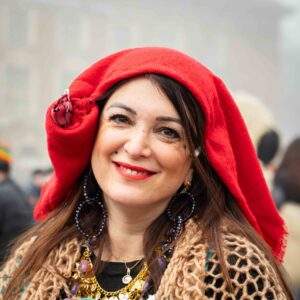Bulgaria and Northern Greece: Day-by-Day Itinerary
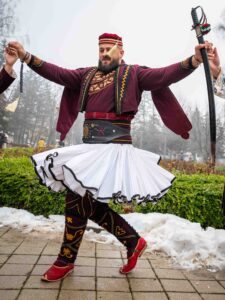
Day 1 – Thursday, January 22
Our adventure begins and ends in Sofia, Bulgaria’s capital. Upon arrival, you will be transferred to our hotel in the city center. This is an introductory day where you will meet your fellow travelers and your guides. Dinner in a typical Bulgarian restaurant in Sofia.
Overnight in Sofia at the 4* Rosslyn Central Park Hotel.
Days 2 & 3 – January 23 and 24
These two days will be devoted to the International Festival of Masquerade Games, or “Surva,” in Pernik town. Internationally it is known now as the Kukeri. The festival is a meeting of thousands of people in costumes, from survakars, kukers, babugers, jamalars and many other masked groups from all ethnographic regions of Bulgaria and guests from abroad.
In the center and on the streets of the city, groups will compete to demonstrate the colors of their games and unique masks and costumes. A dazzling spectacle, lights and illuminations will immerse us in the mystery of the festival race. We will be able to interact with the participants along the parade route and on the improvised states in the city. In 2014, this Surva festival was included in National Geographic’s ranking of the world’s top winter destinations.
Our first day is dedicated primarily to the youth groups, which is a great way to familiarize ourselves with the people, the festival, the traditions and how to approach it visually and photographically.
Saturday is fully packed with lots of action and groups. It is also the day with international groups, so there is even more diversity of people and costumes. We will photograph these groups from several different locations, including the main stage, the area where the groups queue and from the area where they initially arrive.
Overnight in Sofia.
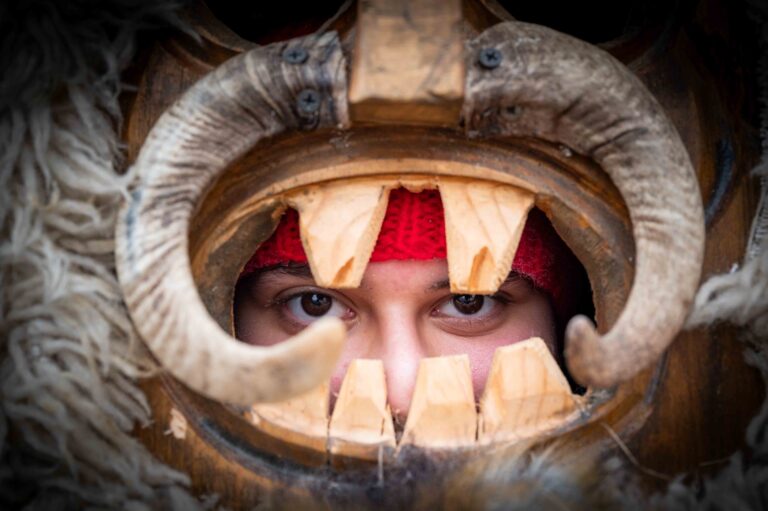
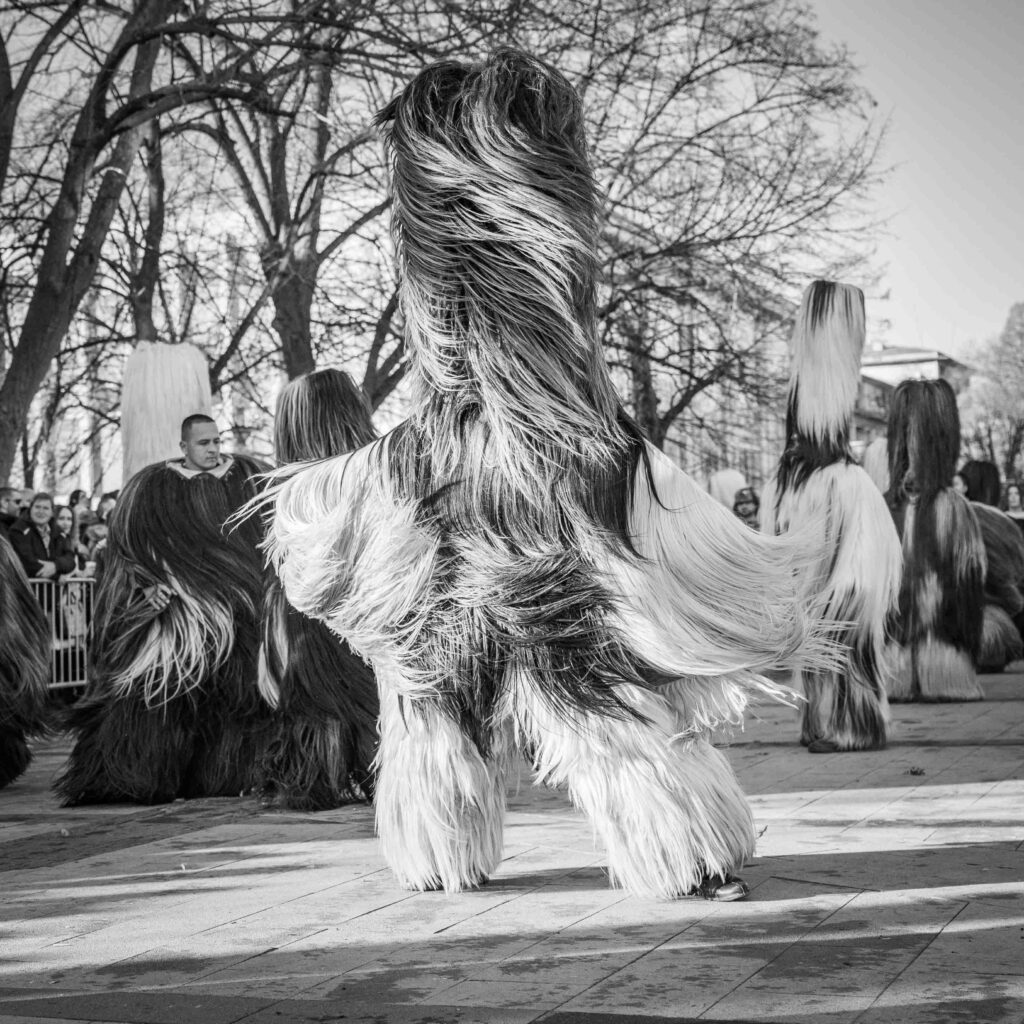
Day 4 – Sunday, January 25
In the morning, we’ll enjoy a private photo shoot with a small group of people dressed in Kukeri. This gives us the chance to get to know the people behind the masks and ask them questions about their traditions and how they are carrying them forward.
From Pernik, we head to the smallest town in Bulgaria and an architectural reserve…Melnik. The town is associated with impressive natural sand pyramids spread throughout the area. The region is also famous for its wine cellars, so in the evening we’ll enjoy a wine tasting and dinner.
Overnight in Melnik at the Bulgari Hotel.
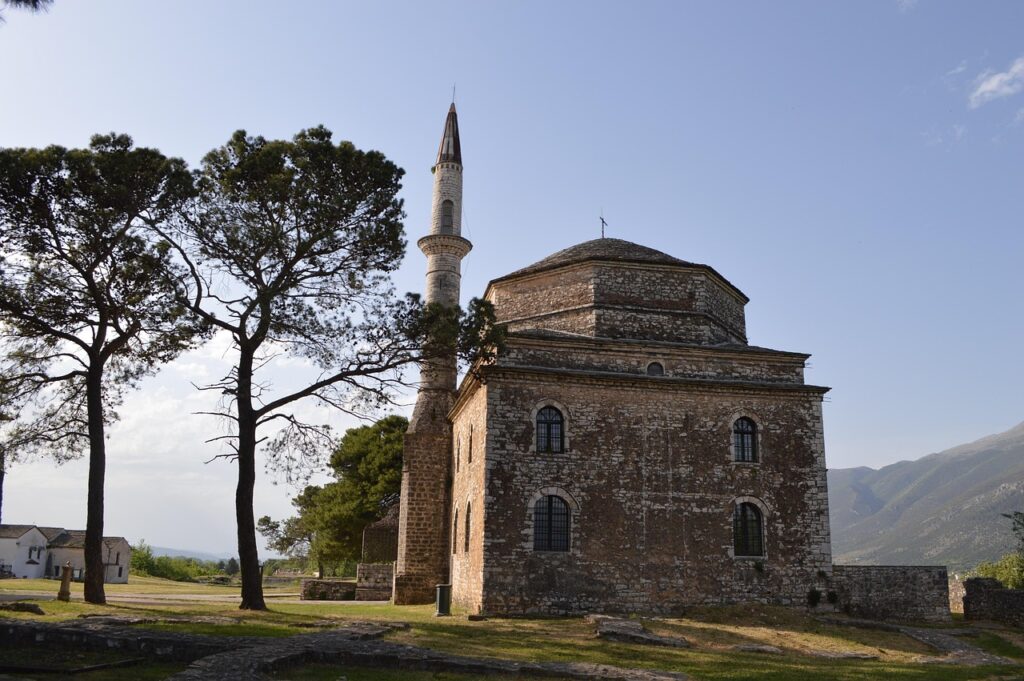
Day 5 – Monday, January 26
In Melnik, we are very close to the Greek border, so we’ll transit from Bulgaria to Greece and head towards the charming town of Ioannina on the shores of Pamvotis Lake. The city flourished during the Byzantine era and still has an impressive fortress from those times. Ioannina was also under Turkish rule and you can still see a mosque by the lake. We’ll spend the late afternoon and the next morning exploring this charming town, learning its stories and photographing it at different times of the day. The town also has an interesting history of silversmithing and we’ll visit a museum dedicated to this craft.
Overnight in Ioannina at the Kamares Boutique Hotel
Day 6 – Tuesday, January 27
Our photographic exploration of Greece continues with a visit to the Zagori region. It’s a less traveled part of Greece, which in 2023 was listed as a UNESCO World Heritage Site in acknowledgement of its well preserved traditional architecture and many stone bridges.
Vikos Gorge is also in the area and on elf the impressive canyons anywhere in the world. We’ll see it from a special viewpoint and then head back to Ioannina for a short boat ride to an island on the lake where there are several monasteries.
Overnight in Ioannina
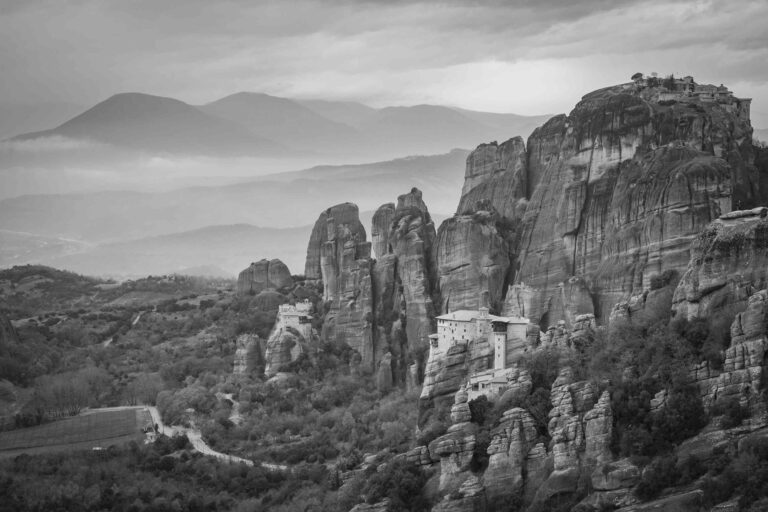
Day 7 – Wednesday, January 28
In the morning, we have the option to visit and photograph Parga, a small charming town by the coast, or head into the mountains for a visit to the village of Metsovo.
Later in the day, we arrive in Meteora, a fascinating place where Greek Orthodox m monasteries were built on towering rock formations. We’ll stay in the nearby town of Kalabaka where we’ll have direct views towards the rocks and some of the monasteries.
Overnight in Kalabaka at the Kosta Famissi Hotel.
Day 8 – Thursday, January 29
Our entire day will be spent uncovering the history of Meteora and photographing it from several different angles and at different times of the day. We’ll start with an early morning shoot, then visit a few of the monasteries an end the day with a sunset shoot. Weather at this time of year can be moody, it can be foggy, it can rain, it can be cloudy or even snow, so we will adapt to the conditions and take advantage of them.
Meteora is the second most important site for Greek Orthodox after Mount Athos. It is definitely one of the most impressive sites you’ll see in Greece. The monks still live and workshop in the monasteries.
Six of the original monasteries can still be visited and we’ll visit at least 2.
Overnight in Kalabaka.
Day 9 – Friday, January 30
In the morning, we’ll spend some additional time photographing Meteora, especially if the weather conditions are significantly different or better than on the previous day.
We’ll then make our way back to the Greek-Bulgarian border, stopping by Vergina on the way. This is the site where the father and son of Alexander the Great are buried and the town also boasts a very interesting museum.
In this same area, there is a lake which is home to a large population of Dalmatian pelicans. It’s probably the best place in the world to photograph these graceful birds. In winter, their gular, or pouch, turns bright red and they are friendlier with people, so we’ll enjoy some “up close and personal” interactions as we photograph them from a boat. Often the water is very still, creating mirror-like reflections.
Overnight in Kerkini at Limneio Guesthouse
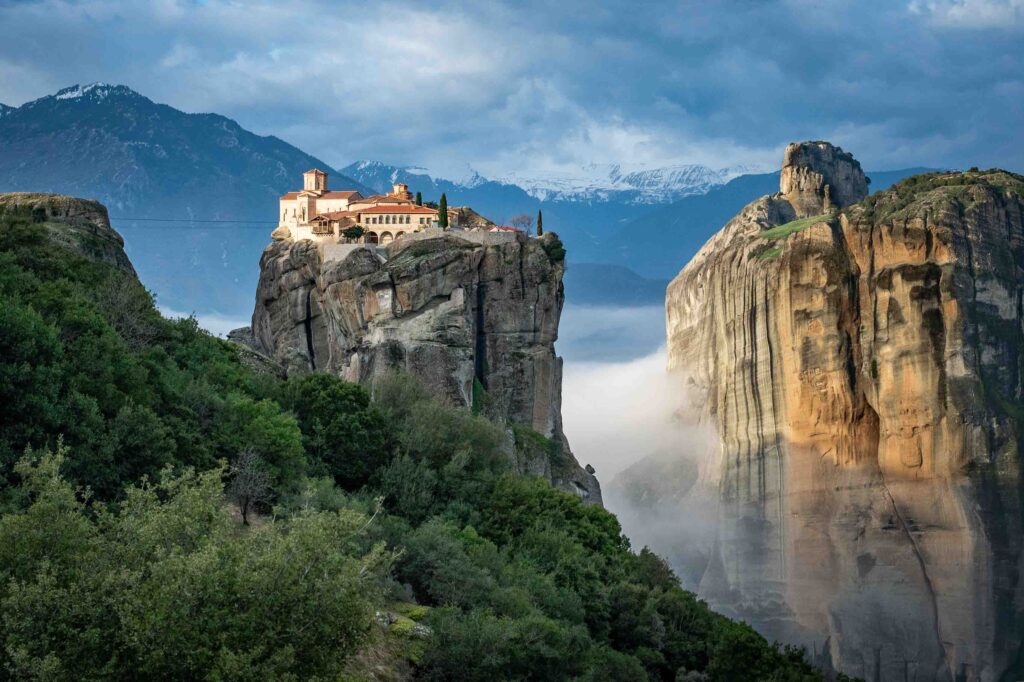
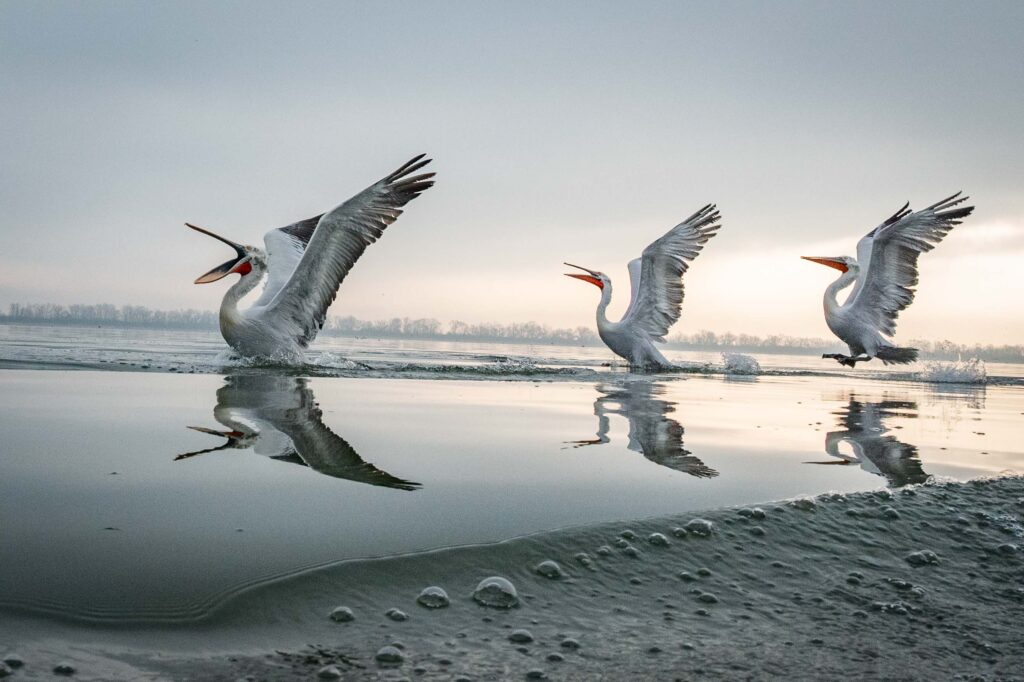
Day 10 – Saturday, January 31
In the morning, we’ll venture out onto the lake again to admire and photograph the pelicans. We’re giving this a second try because weather conditions could be very different from the previous afternoon.
Then it’s time to head back towards Sofia. We’ll stop at the larges and most important monastery in Bulgaria, Rila Monastery. This UNESCO World Heritage Site was founded in the 10th century by a hermit named Ivan Rilski and has been under UNESCO’s protections since 1983. The beautiful architecture of the monastery corresponds perfectly with the surrounding high peaks of the Rila Mountains.
After a full day, we arrive back in Sofia for a farewell dinner in a traditional Bulgarian restaurant.
Overnight in Sofia at the Rosslyn Central Park Hotel.
Day 11 – Sunday, February 1
Time to say farewell to the group and head for home. Transfer from the hotel to Sofia airport.
